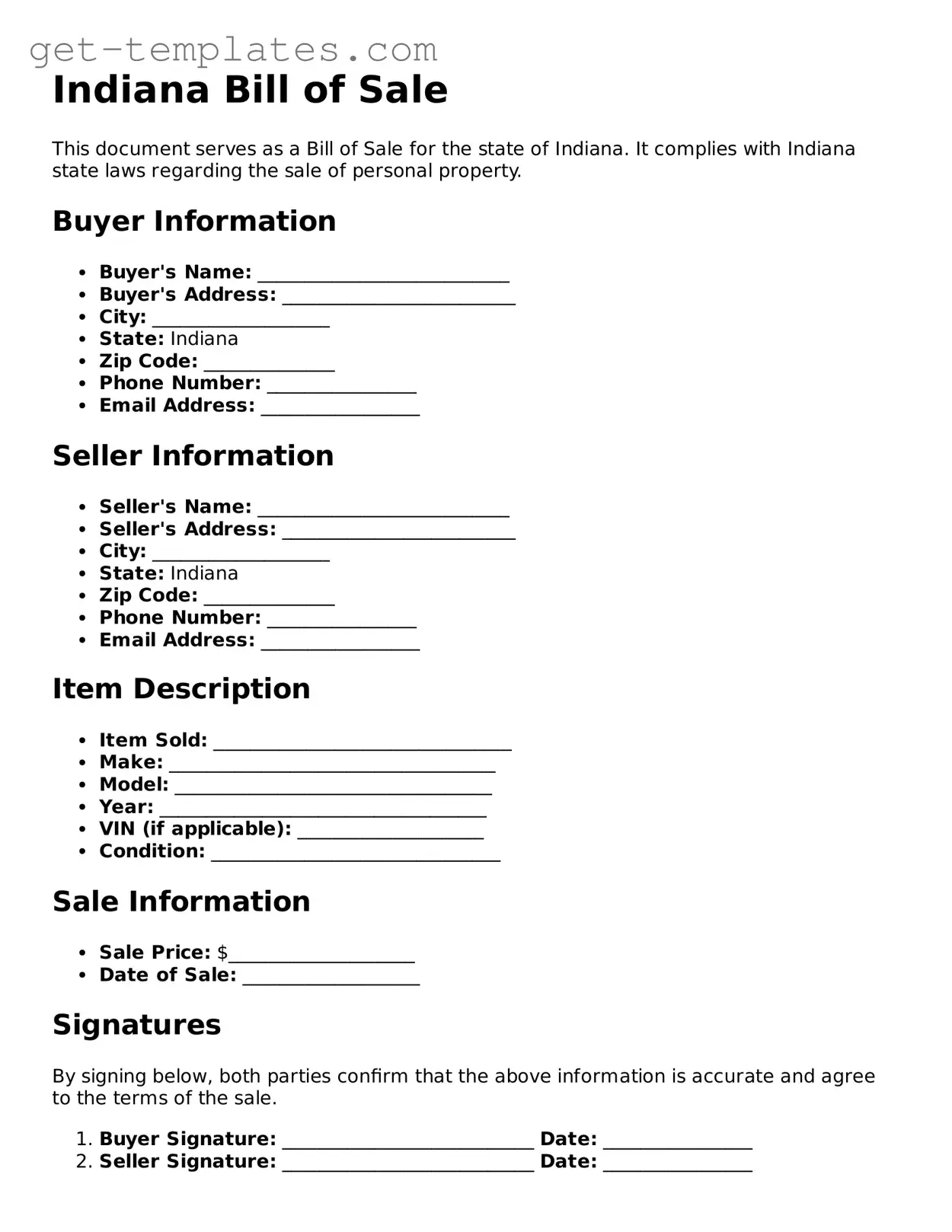Attorney-Approved Bill of Sale Document for Indiana
The Indiana Bill of Sale form is a legal document that serves as proof of the transfer of ownership of personal property from one party to another. This form is essential for both buyers and sellers, ensuring that the transaction is documented and legally recognized. Understanding its components can help individuals navigate the process smoothly and protect their rights.
Get Document Online

Attorney-Approved Bill of Sale Document for Indiana
Get Document Online
You’re halfway through — finish the form
Finish Bill of Sale online — edit, save, download made easy.
Get Document Online
or
⇓ PDF Form
